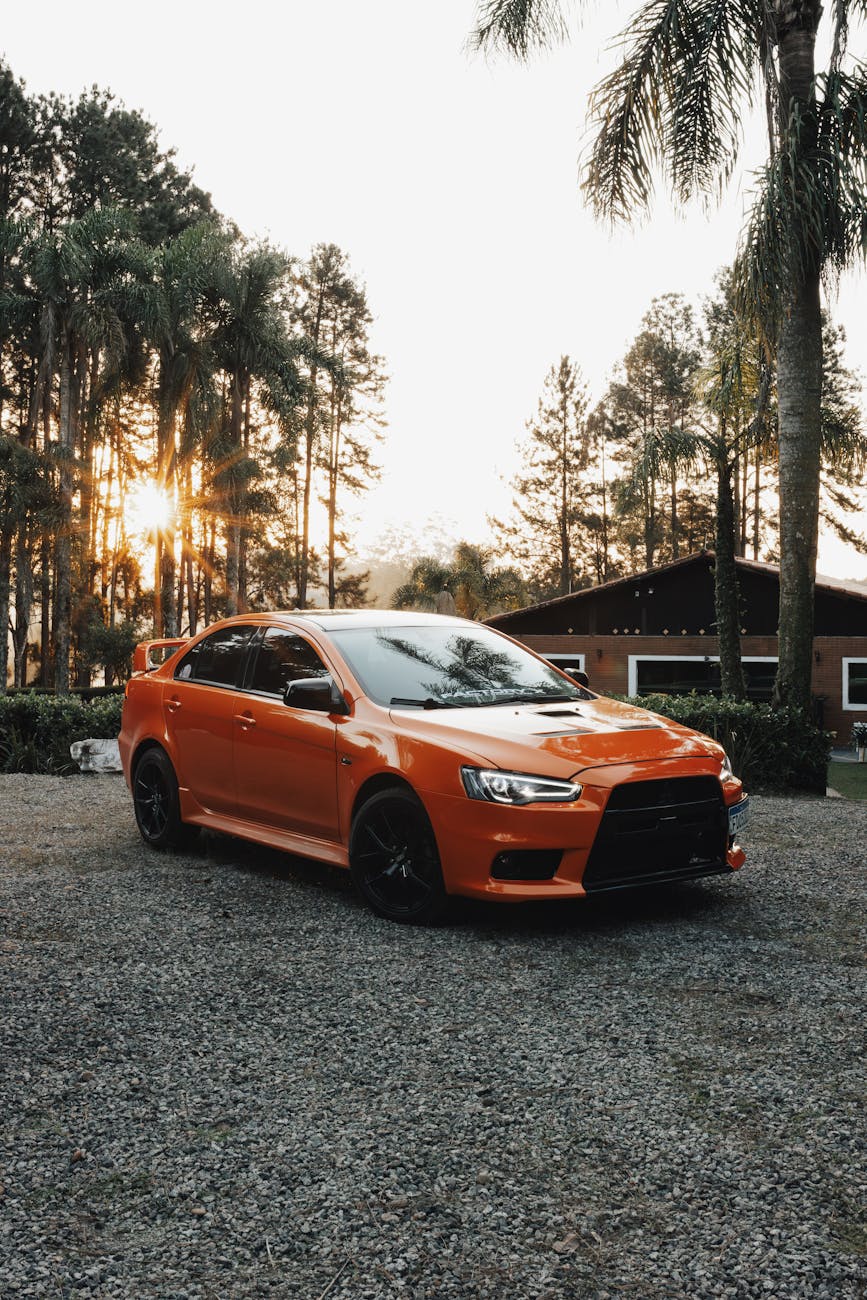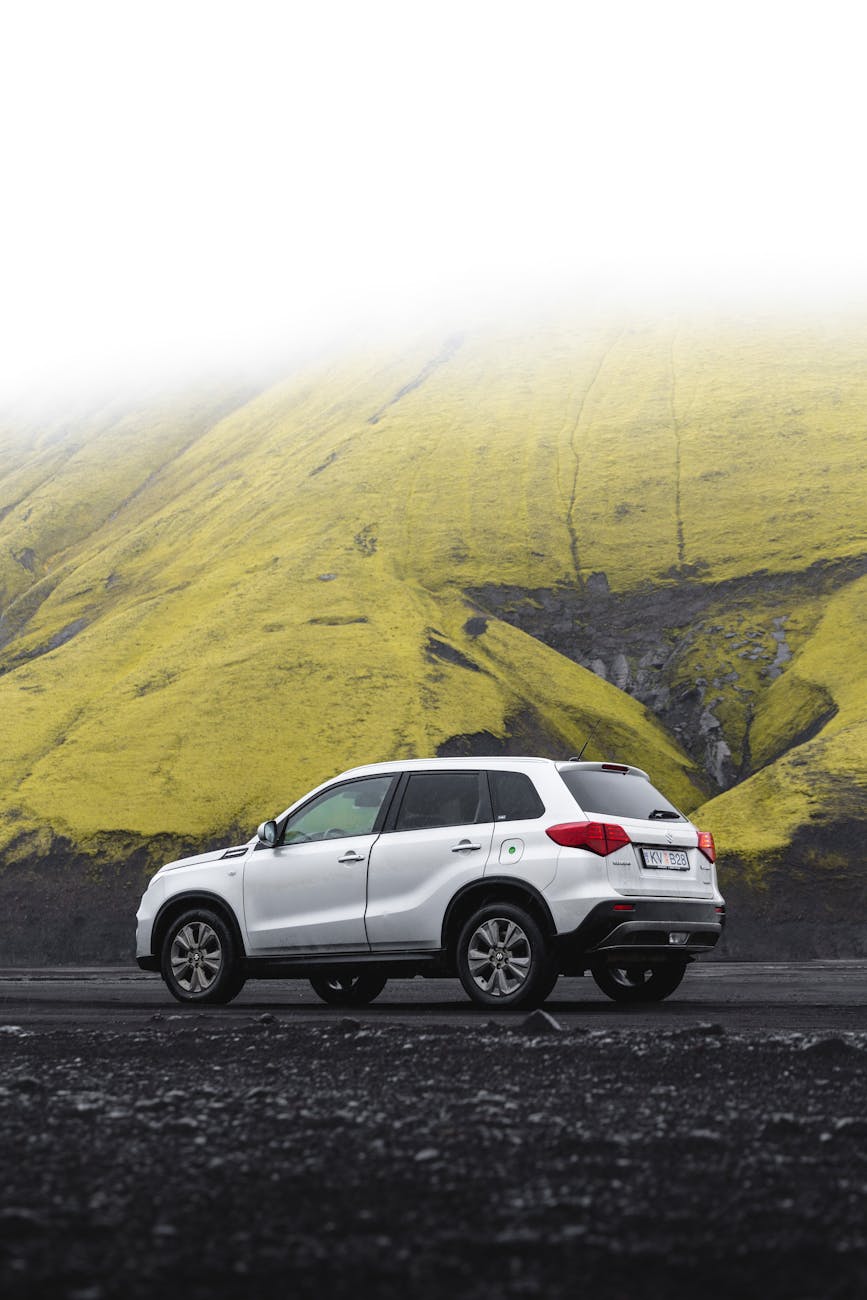Understanding PCP Deals
What is PCP Financing?
Personal Contract Purchase (PCP) is a popular form of car finance in the UK. It offers a flexible solution for individuals who want to drive a new or nearly new car without committing to full ownership from the start. With a PCP agreement, you pay an initial deposit followed by fixed monthly instalments over an agreed term, typically between two and four years (Nerdwallet).
At the end of the PCP term, you have three options:
- Return the Car: Hand the vehicle back to the finance company without any further obligations (subject to mileage and condition terms).
- Pay the Balloon Payment: Make an optional final lump sum payment, known as the ‘balloon payment,’ to own the car outright.
- Use the Equity: Trade the car in and use any equity as a deposit for a new PCP deal.
| PCP Option | Description |
|---|---|
| Return the Car | Hand back the vehicle with no further obligations |
| Pay the Balloon Payment | Make a final lump sum payment to own the car |
| Use the Equity | Trade in the car and use the equity for a new PCP deal |
Benefits of PCP
PCP car leasing deals offer several advantages, making them an attractive option for many drivers:
Lower Monthly Payments: One of the primary benefits of PCP is the lower monthly payments compared to other finance options, such as Hire Purchase (HP). This is because you are not paying off the full value of the car, but rather the depreciation over the term (Money Stack Exchange).
Flexibility: At the end of the agreement, you have multiple options, providing flexibility based on your financial situation and future needs. Whether you want to keep the car, exchange it, or return it, PCP deals cater to various preferences.
Access to Newer Cars: PCP allows you to drive a new or nearly new car every few years, keeping you in the latest models with updated technology and safety features. This is ideal for those who prefer to change their vehicle regularly without the hassle of selling or trading in an old car (Creditplus).
Option to Own: Unlike traditional leasing, PCP offers the option to own the car at the end of the term by paying the balloon payment. This provides an ownership pathway for those who may decide they want to keep the car.
For more detailed explanations and to explore specific PCP car deals, visit our pcp car leasing page. Additionally, for those who have experienced issues with mis-sold PCP agreements, consider consulting a solicitor to handle your claim for compensation.
By understanding the intricacies of PCP financing and its benefits, you can make an informed decision about whether this car finance option aligns with your needs and financial goals. For further insights, you can also use our pcp calculator to estimate your potential costs and payments.
Exploring PCP vs. Leasing
When considering your options for financing a vehicle, it’s crucial to understand the differences between Personal Contract Purchase (PCP) and leasing. Both options have their unique benefits and costs, making it important to determine which suits your needs best.
Key Differences
Ownership
- PCP: Provides the option to purchase the vehicle at the end of the term by paying a balloon payment. If you choose not to buy the car, you can return it or use any equity towards a new PCP agreement.
- Leasing: Does not offer the option to buy the vehicle. The car is returned to the leasing company at the end of the agreement (Creditplus).
Flexibility
- PCP: Offers more flexibility with end-of-term options, including buying the car, returning it, or starting a new PCP deal (Wagonex).
- Leasing: Generally simpler, akin to a long-term rental. You pay monthly and return the car at the end. No option to purchase the vehicle.
Equity
- PCP: Allows you to potentially build equity in the vehicle, which can be used towards a new car deal at the end of the term (Nerdwallet).
- Leasing: No equity is built as you do not own the vehicle at any point (Wagonex).
Cost Analysis
A thorough cost analysis is essential when deciding between PCP and leasing. Below is a comparison of the typical costs associated with each option.
| Cost Component | PCP | Leasing |
|---|---|---|
| Initial Deposit | Higher deposit to lower monthly payments | Lower initial deposit |
| Monthly Payments | Generally higher due to potential ownership | Typically lower monthly cost (Creditplus) |
| Balloon Payment | Required if you choose to buy the car at the end | Not applicable |
| End-of-Term Costs | Possible additional costs if buying the car | No end-of-term purchase option |
PCP agreements often involve a higher initial deposit and monthly payments compared to leasing. However, PCP provides the flexibility to purchase the vehicle at the end of the term or use any equity towards a new deal. Leasing, on the other hand, offers lower monthly costs but does not provide an option for ownership or equity building.
For more detailed calculations, you can use our pcp calculator and pcp car lease calculator to better understand the financial implications of each option.
By carefully weighing the key differences and costs, you can make an informed decision about whether a PCP or leasing agreement is the best choice for your needs. For further information on PCP agreements, visit our pcp car finance explained page.
Navigating PCP Agreements
Understanding the details of a Personal Contract Purchase (PCP) agreement is crucial, especially if you are considering pcp car leasing deals. This section covers the end-of-term options and the financial considerations you need to be aware of.
End-of-Term Options
At the end of a PCP agreement, you have several options to choose from, allowing you to decide what best suits your circumstances. According to the AA, these options include:
- Returning the Car: Hand the vehicle back to the dealer without any further financial commitments, provided the car is in good condition and has not exceeded the agreed mileage.
- Using the Equity: Use any positive equity in the car as a deposit towards a new PCP agreement.
- Paying the Optional Final Payment: If you wish to own the car, you can pay the optional final payment (also known as the balloon payment) to take full ownership.
Financial Considerations
When navigating a PCP agreement, it is essential to understand the financial implications. The overall cost of a PCP deal can vary based on several factors, including the interest rate (APR), the initial deposit, monthly payments, and the optional final payment.
| Financial Aspect | PCP Agreement |
|---|---|
| Initial Deposit | Typically 10% – 20% of the car’s value |
| Monthly Payments | Lower than traditional car loans |
| Optional Final Payment | Varies based on car value and agreement terms |
| APR | Typically between 5% and 10% (Leasing.com) |
APR and Interest Rates
PCP agreements usually come with a fixed APR, typically ranging between 5% and 10% (Leasing.com). It’s important to compare rates across different providers to find the best deal. For a detailed comparison, you can use a pcp calculator.
End-of-Term Payments
The optional final payment is a significant part of the financial consideration. This payment allows you to own the car but requires careful planning to ensure you can afford it at the end of the agreement. If you decide not to purchase the car, you can return it or use the equity towards a new vehicle. For more details on how these terms work, refer to pcp car finance explained.
Potential Mis-sold PCP Claims
If you believe you have been mis-sold a PCP agreement, it’s crucial to seek legal advice. Mis-sold PCP deals can occur due to a lack of clear information or misleading terms. Solicitors specializing in PCP claims can help you seek compensation. For more information, visit our section on pcp agreement.
Understanding these end-of-term options and financial considerations can help you navigate your PCP agreement more effectively. Whether you choose to return the car, use the equity, or make the final payment, being informed will ensure you make the best decision for your financial situation.
PCP vs. Subscription
Cost Comparison
When comparing PCP (Personal Contract Purchase) and subscription services, it’s important to consider the total cost of ownership. Subscription services often include all costs in one monthly payment – car cost, road tax, maintenance, servicing, roadside assistance, and optional insurance. This transparency and convenience can make subscription services a more affordable option in the long run.
Real-life examples show that in 2 out of 3 cases (diesel, hybrid, and full EV cars), subscription has the cheapest costs for a 24-month deal. Opting for subscription over PCP could result in savings of over £5,000 on certain cars.
| Comparison | Subscription | PCP |
|---|---|---|
| Monthly Cost | Higher | Lower |
| Total Cost Over 24 Months | Often Cheaper | Potentially Higher |
| Included Services | Comprehensive | Limited |
| Initial Deposit | None | Required |
Flexibility and Benefits
Subscription services offer unparalleled flexibility. They allow for shorter commitments, such as 12-month, 6-month, or even 1-month subscriptions (Wagonex). This enables you to switch vehicles more frequently without long-term commitments.
In contrast, PCP agreements provide flexibility at the end of the contract. You have options to hand the car back, swap it for a new one, or purchase it by paying a lump sum known as the balloon payment (Moneyshake). However, the APR interest rates on PCP contracts can range from 4-8%, and up to 20% for used cars, which can significantly affect the total cost.
| Feature | Subscription | PCP |
|---|---|---|
| Commitment Period | Short (1-12 months) | Longer (Typically 24-48 months) |
| End-of-Term Options | Switch, Keep, or Return | Hand Back, Swap, or Purchase |
| Flexibility | High | Moderate |
| Interest Rates | None | 4%-20% |
For more details on the differences between PCP and other financing options, visit our pcp vs hp and pcp car leasing pages. Additionally, you can use our pcp calculator to estimate your potential costs and savings.


